
Browse our fun-packed, helpful plant-based articles, and delve deeper into this healthy, sustainable lifestyle!


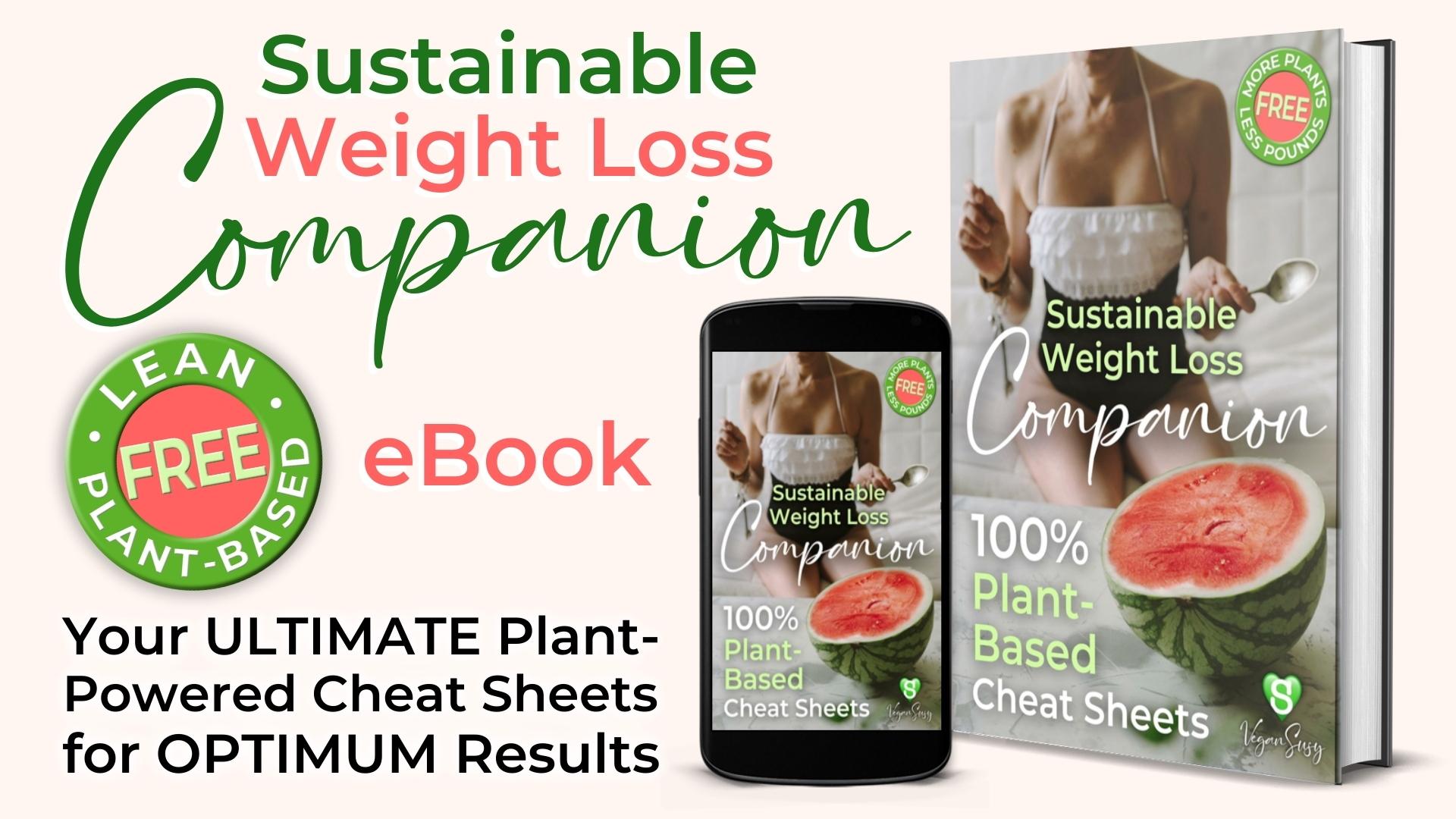
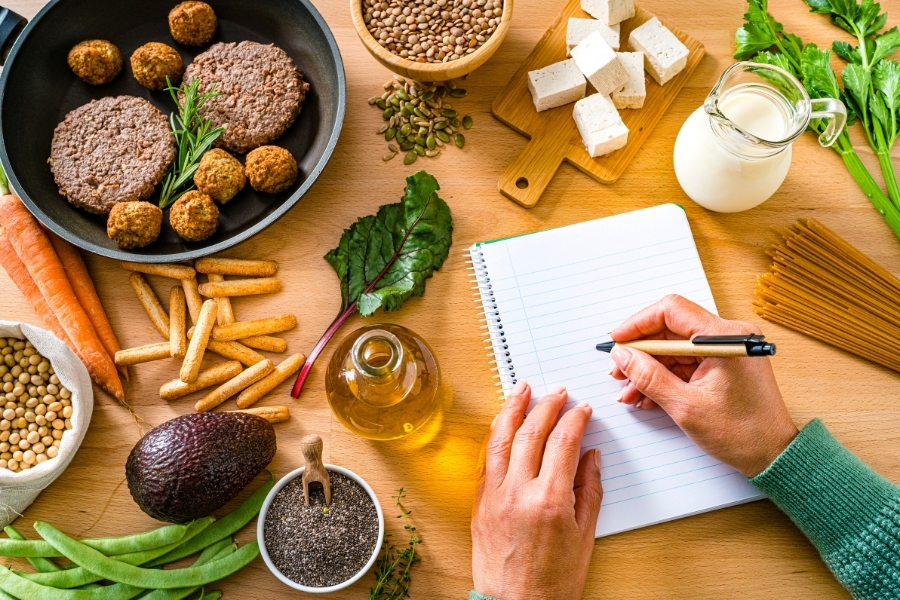
Navigate Menopause on a Vegan Diet: Essential Nutrients & Supplements
Plant-Based Lifestyle Tips For Women
Author: Plant-Based Susy
Menopause is easier to navigate on a vegan diet. But your body's needs are changing, and it's essential to ensure you get the proper nutrients through food and supplementation.
Navigating menopause as a vegan has many benefits, including helping manage weight and reducing hot flashes, sleep disturbances, and inflammation. Essential nutrients for menopause include B12, calcium, omega-3 fatty acids, magnesium, vitamin D, iron, protein, and fibre.
We at Vegan Susy have found a whole food plant-based diet combined with 150+ minutes of exercise a week is the best way to navigate menopause, as well as to lose weight and increase energy levels naturally, all at the same time.
We'll show you the nutrients your body needs from plant-based meals, snacks and supplementation to feel healthy and strong during this natural transitionary period.
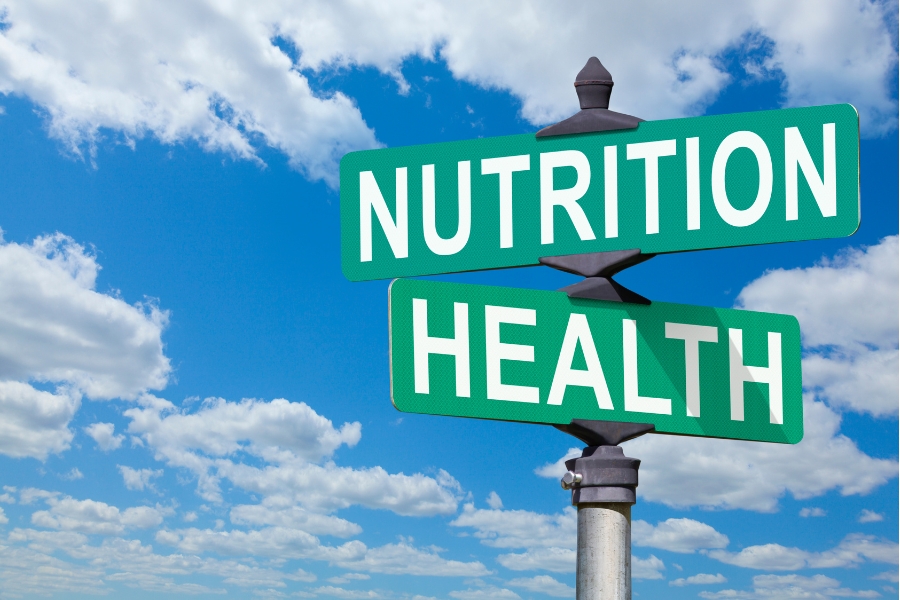
Table of Contents:
Can a Vegan Diet Help With Menopause?
A vegan diet can help with menopause. As we've discussed before, the benefits of switching to a plant-based diet when transitioning from premenopausal to postmenopausal include the following:
Reduces hot flashes by 88% (HRT has a reduction rate of 70-90%).
Increases gastrointestinal hormones necessary for regulating glucose and satiety.
Helps with weight management, including weight loss.
Reduces sleep disturbances.
Reduces inflammation and chronic illness associated with menopause.
The research on a vegan diet and menopause found three main dietary reasons for the overwhelming success:
No animal products.
Low-fat.
A daily serving of soybeans.
Yet, navigating menopause as a vegan requires going beyond these three factors and embracing a variety of plant-based whole foods. After all, a brown rice and soybeans diet technically meets the three main criteria, and they are nutritious, but variety is the spice of life.
Lastly, while eating a complete and balanced diet as a vegan is possible, supplements can help when we are busy, have a chronic condition, or can't eat certain foods due to allergies or lack of availability.
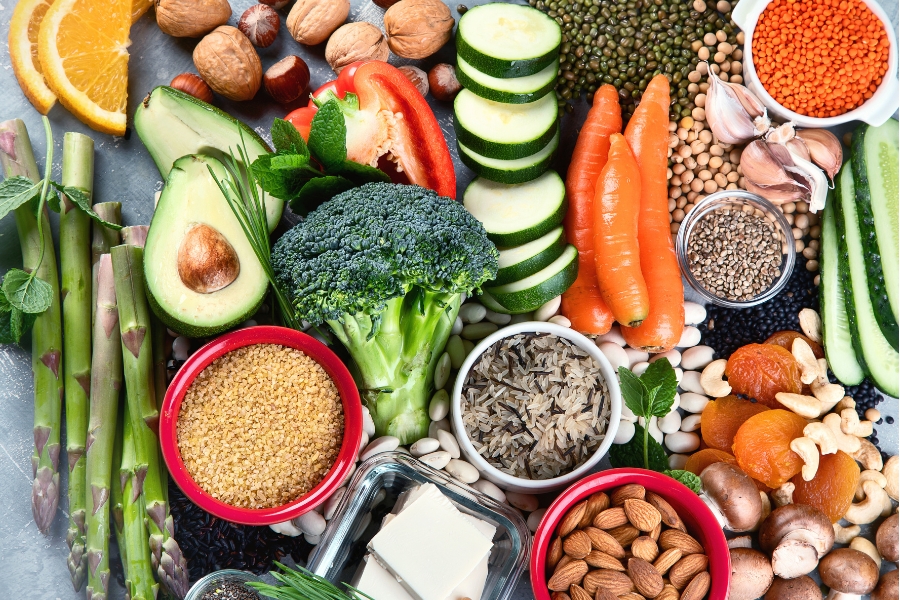
Nutrients for Menopause on a Vegan Diet
Menopause can be a period when we experience nutritional deficiencies in areas we've never struggled before. Our bodies change, and to meet our evolving needs, we need to be more mindful of our diets and supplement where necessary.
Nutrients women going through menopause may be deficient in include:
B12
Omega-3 fatty acids
Magnesium
Calcium
Vitamin D
Iron
Vitamin A
Vitamin K
Vitamin C
Protein
Fibre
Probiotics
Supplementing B12 on a Vegan Diet
Vitamin B12 is the most common supplement for vegans. The nutrient is mostly found in animal-based products, and while plant-based foods like mushrooms, seaweed and algae have low levels of B12 naturally, these are not considered a reliable source.
B12 is a water-soluble vitamin that is produced by certain bacteria found in the soil. Animals acquire vitamin B12 by ingesting foods containing the bacteria that produce it. For example, herbivores may obtain vitamin B12 by consuming plants that have traces of soil containing the bacteria, or by directly consuming soil during grazing.
Vitamin B12 is important for many areas of health, including:
Avoiding anaemia.
Essential for a healthy brain and nervous system.
Helps the body create DNA.
Aids in serotonin production.
Lowers risk of macular degeneration.
In addition, vitamin B12 may be linked to bone health. As menopause increases the likelihood of developing osteoporosis, it is crucial to maintain bone density as much as possible.
A vitamin B12 deficiency may include some of the following symptoms:
Lack of appetite.
Increased tiredness or persistent fatigue.
Tingling or numbness in hands and feet.
Decreased mood or depression.
Headaches.
Brain fog.
Heart palpitations.
Struggles with balance and walking.
Vegans who supplement with B12 can have excellent levels of the nutrient. It is water-based, so the body will flush out any excess it does not need.
If you want to avoid B12 supplements on a vegan diet, you must obtain them through a balanced diet including fortified foods. However, always check the labels as not all brands of the following are fortified:
Plant-based milks.
Nutritional yeast.
Some yeast extracts, such as Marmite and Vegemite.
Breakfast cereals.
Plant-based meat-substitute products.
As the Vegan Society points out: “In choosing to use fortified foods or B12 supplements, vegans are taking their B12 from the same source as every other animal on the planet - micro-organisms - without causing suffering to any sentient being or causing environmental damage.”
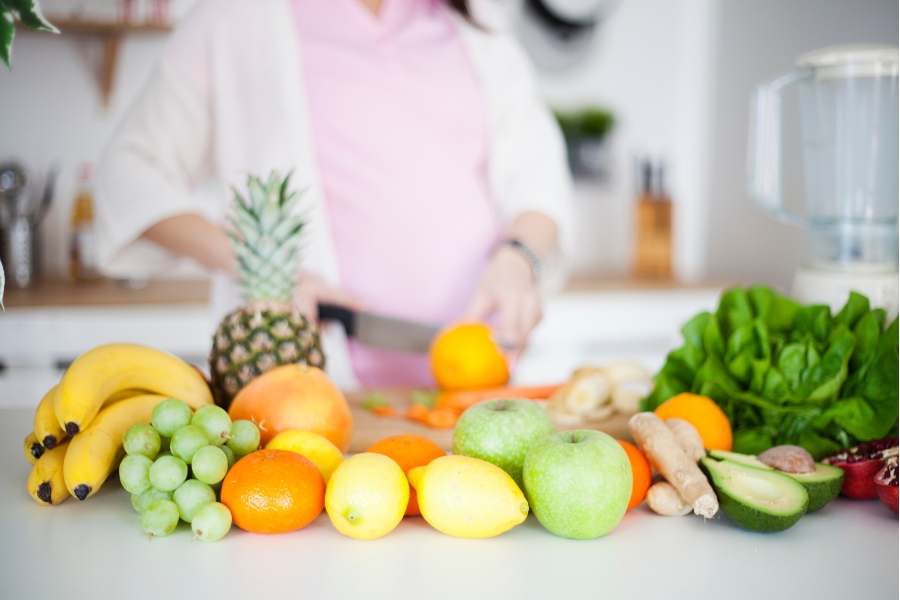
Vegan-Friendly Omega-3 Supplements for Menopause
Most of us are aware of omega-3's general health benefits, but there is often a misconception that they can only be obtained through fish. Thankfully, there are vegan-friendly ways to obtain essential nutrients. Good news for anyone in the menopausal transition on a plant-based diet.
For instance, omega-3 supplementation has been found to reduce hot flashes. Omega-3 is also recommended to help ease or prevent other health issues that frequently crop up in menopause, including:
Depression
Inflammation
Osteoporosis
Diabetes
High blood pressure
Heart disease
Stroke
Obesity
Brain fog/memory issues
Vegans can still obtain the essential fatty acids from food. Excellent plant-based omega-3 sources include:
Brussels sprouts (cooked is best)
Chia seeds
Chlorella
Edamame
Flaxseeds
Hemp seeds
Kidney beans
Nori
Spirulina
Tofu
Walnuts
Wheat germ
Vegans concerned they are not getting enough from their diet can also take plant-based omega-3 supplements. Rather than use fish oils, these supplements extract the essential fatty acids from plant sources such as algae or seaweed.
When choosing a plant-based omega-3 supplement, look for vegan-approved products that contain DHA and EPA fatty acids. Some only contain one, and your body needs both.
Lastly, if you are new to taking algae oil, start with a lower dose to avoid upsetting the digestive system. Too much too soon can cause unpleasant side effects such as nausea or diarrhoea.

Menopause Symptoms Eased with Magnesium
Magnesium is a naturally alkaline earth metal necessary for energy production and other essential bodily systems. Most notably, it is vital for our bone health and plays an essential role in vitamin D absorption. In addition, people battling muscle cramps often find magnesium supplements helpful.
Studies into its relevance during menopause are in their infancy. However, evidence suggests magnesium supplementation can ease symptoms caused by neuro-inflammation, including:
Chronic pain
Memory problems
There are many vegan-friendly foods rich in magnesium, including:
Almonds
Avocado
Bananas
Black beans
Cacao
Chickpeas
Kale
Edamame
Oatmeal
Peanuts
Peas
Pumpkin seeds
Quinoa
You may need to supplement magnesium if you have health challenges, such as gastro conditions or soft tissue disorders like Ehlers-Danlos syndrome or experiencing bodily changes like menopause, even if following a balanced diet.
Magnesium supplements come in many forms. Some are considered better for particular conditions. For instance, magnesium glycinate or L-threonate are often used to help manage anxiety or sleep disturbances.
All forms of magnesium are considered beneficial for menopause. But some believe the best for women in the transition are:
Magnesium aspartate
Magnesium citrate
Magnesium chloride
Magnesium malate
Be aware that magnesium is famous for its laxative effect. Proceed slowly, allowing the digestive system time to adjust before increasing the dosage if you are new to the supplement. If you struggle with diarrhoea, you may find magnesium malate the gentlest option.
Vegans May Need Calcium Supplements
According to medical experts, including those at Johns Hopkins, a woman’s need for calcium rises after menopause. Before the transition, the average person needs 1,000 mg of the essential mineral, but after menopause, the daily intake should be 1,200 mg.
Calcium's role in bone health is well known. It is also believed to be important to avoid or manage other disorders, including:
Hypertension
Colorectal cancer
Nephrolithiasis
Obesity
Calcium isn't only found in dairy products despite what the milk industry would have you believe. Many orange juice varieties and breakfast cereals are calcium-fortified.
There are also non-fortified vegan sources, including:
Almonds
Bok choy
Broccoli
Butternut squash
Chia seeds
Collard greens
Dried figs
Okra
Rocket (arugula)
Sunflower seeds
Sweet potatoes
Swiss chard
Tempeh
Tofu
White beans
Calcium supplementation is often recommended for vegans going through menopause. Even women eating animal products often struggle to obtain enough of the essential nutrient through diet alone.
Be aware that not all calcium supplements are vegan-friendly. Look for 100% plant-based products, like those made from algae.

Vitamin D is Essential for Menopausal Women
Vitamin D is sunshine's gift to humanity, an incredibly vegan-friendly source. Menopausal women need it for bone health and more.
Aside from mushrooms, almost all vegan food sources are fortified. Products to consider, depending on the brand, include:
Breakfast cereals
Orange juice
Plant-based milks
Tofu and other soy-based products
Due to the lack of plant-based vitamin D sources, people who do not get enough sun are advised to take supplements. Women post-menopause or going through the transition should be particularly mindful.
For instance, research has found an association between vitamin D deficiency and obesity in postmenopausal women.
Other areas where people in the menopause transition and beyond remain vulnerable due to vitamin D deficiencies include:
Cancer mortality
Depression and mood disorders
Heart disease
Joint pain
Muscle weakness
Sexual function
Sleep disturbances
Stroke
Type 2 diabetes
There are growing concerns that supplemental vitamin D is not as beneficial to avoiding or helping the above conditions as acquiring it from the sun.
Advice on how to safely get vitamin D through sun exposure includes:
Rotating which part of the body is exposed to sunlight each day.
Avoid exposing the neck and above; choose parts of the torso or limbs instead.
Limit sun exposure to 10-30 minutes daily, depending on skin tone and sensitivity.
Avoid daily exposure at high summer, reducing it to 3 times a week.
Also, sun exposure is ineffective at creating vitamin D through a window or SPF 8 or higher. The sun must also be 45 degrees or higher above the horizon for your body to effectively use the sunlight to make vitamin D.
Be aware certain medical conditions or family history can make sun exposure risky and unadvisable. Always discuss vitamin D and sun exposure with your doctor or medical practitioner.
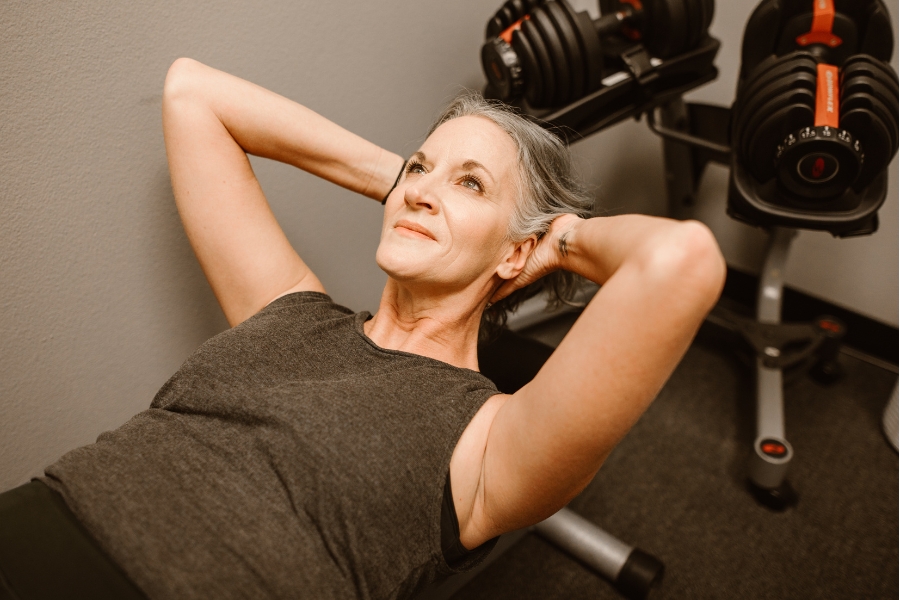
Get Enough Iron on a Plant-Based Diet
We can get plenty of iron on a plant-based diet. Nor is supplementing iron necessary for most women post-menopause. At this stage of life, women's daily iron requirements fall in line with men's due to their no longer menstruating.
However, a vegan-friendly iron supplement may be necessary during the menopausal transition. Many women experience their heaviest flows during this life phase, which increases the need for iron.
Also, low iron has been associated with weight gain. Conversely, treating anaemia has been known to improve the metabolism and cause weight loss.
Signs of iron deficiency include:
Dizzy or light-headedness
Fatigue
Feeling weak
Headaches
Rapid heartbeat
Nutritious plant-based options to get your iron:
Black-eyed peas
Black olives
Flaxseeds
Canned coconut milk
Cashews
Natto
Lima beans
Lentils
Pine nuts
Pumpkin seeds
Sesame seeds
Soybeans
Tempeh
You can get the most out of these iron-rich foods by pairing them with those high in vitamins C and A and beta carotene to help with absorption.
Menopausal Women Need Vitamin A for Bone Density
Vitamin A is a fat-soluble nutrient necessary to keep our skin and mucus membranes healthy, aids with night vision, and supports the immune system. It is also essential for good bone health, especially to avoid fractures post-menopause.
As vegans, we generally don't eat vitamin A (retinol) directly, as it is derived from animal foods like eggs and dairy. Instead, we can convert it from beta-carotene, and research suggests beta-carotene can help reduce obesity.
In addition, beta-carotene is safer to consume than retinol. The body will stop converting beta-carotene into retinal when it has enough. Thus, the worst that can happen by eating too much beta-carotene is turning an unbecoming shade of orange. The same cannot be said for too much retinol.
There are many excellent plant-based sources of beta-carotene, including:
Butternut squash
Cantaloupe
Carrots
Kale
Mango
Papaya
Red pepper
Spinach
Sweet potato
Watercress
Be aware that excessive amounts of vitamin A (retinol) can also lead to bone fractures. It is best to obtain it from your diet unless directed otherwise by a doctor.
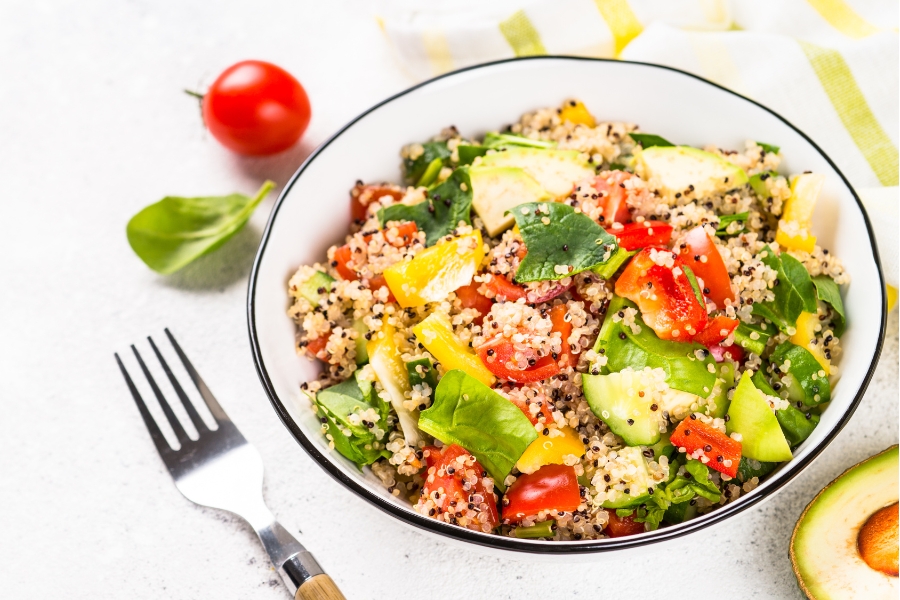
Vitamin K for Bone Health
Vitamin K is another fat-soluble nutrient. We need it for blood clotting, wound healing, and bone metabolism, thus essential to avoiding osteoporosis. In addition, there is some evidence it might help postmenopausal women reduce cancer risk, avoid heart disease, and improve cardiovascular health.
Vitamin K comes in two forms: phylloquinone, found in plant-based foods, and menaquinones, found in animal and fermented foods. The latter can also be produced in humans by helpful bacteria living in the body.
Unlike most fat-soluble vitamins, vitamin K is harder to overdose. The nutrient is broken down pretty quickly and excreted, so supplementing vitamin K is less risky than vitamin A. However, a healthy vegan diet generally provides enough naturally.
Vegan sources of vitamin K include:
Avocado
Blackberries
Brussels sprouts
Broccoli
Cabbage
Dried figs
Kale
Kiwi
Natto
Pomegranate
Prunes
Spinach
Spring onions
Sprouted mung beans
Good Bone Density Requires Vitamin C
Vitamin C is easily acquired on a plant-based diet. The water-soluble nutrient is famous for boosting the immune system and maintaining healthy skin.
Vitamin C also plays a significant role in healthy bones and cartilage. Studies have found plasma vitamin C contributes to postmenopausal bone density. Interestingly, the research is mixed on dietary vs supplementation. Some say getting enough for food is fine, while others insist on supplements.
We've all heard how easy it is to get vitamin C from fruit. But some of us need to keep fruit to a minimum due to watching our sugar intake. For vegans looking for less sweet sources, consider the following:
Bell Peppers
Broccoli (as much vitamin C as an orange)
Brussels sprouts
Cabbage
Cauliflower
Chilli peppers
Kale
Sweet Potato
Vitamin C is also necessary for absorbing non-heme iron, which is the type provided by plants. The same is true with vitamin D. So, when planning meals, try to ensure your iron-rich foods are paired with those high in vitamin C.
Lastly, remember that vitamin C is water soluble and is easily destroyed by heat and light. To preserve the nutrients when cooking your vegetables, like broccoli or sprouts, stir-fry or blanch rather than a long boil.
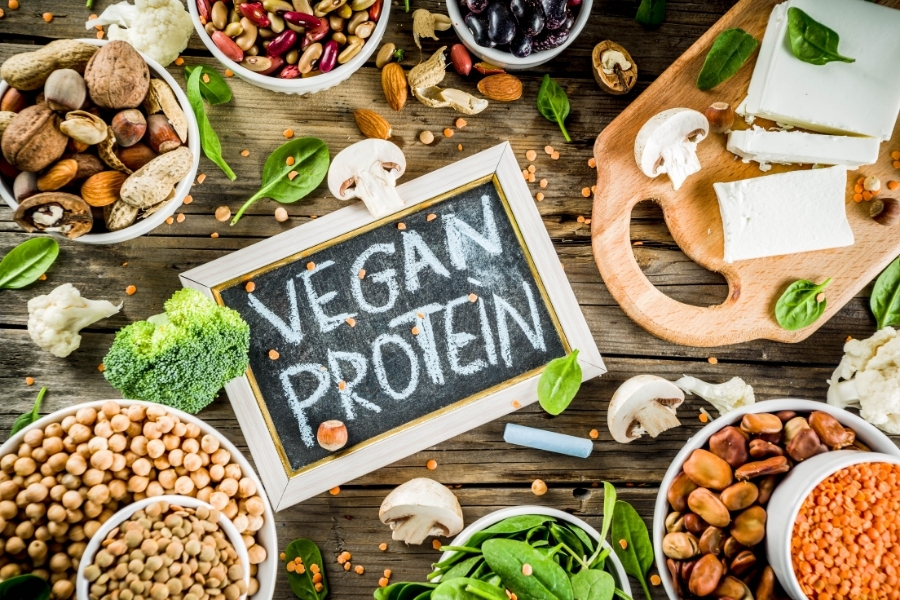
Plant-Based Proteins for Menopausal Vegans
Protein becomes increasingly important as we age, especially for women once the menopausal transition begins. Women are encouraged to eat more protein and engage in strength training to avoid losing valuable muscle mass.
Signs of low protein include:
Fatigue
Muscle weakness
Sugar cravings
Craving protein-rich foods
Constant hunger
Muscles appear smaller and less toned despite exercising
Hair loss
Skin problems
Nails looking brittle
Slow to heal
Bones become more fragile
Unfortunately, researchers have found that women post-menopause frequently do not consume enough protein, all during a life stage where it is harder to build or maintain muscle.
Studies have also found that postmenopausal women have higher pro-inflammatory mediators, which negatively impacts muscle mass.
The good news is that Physicians Committee for Responsible Medicine has found that a plant-based diet helps reduce inflammation, one of the main culprits in maintaining muscle mass after menopause.
Nor do you need to eat animal-based products to get enough protein. Get yours from quality vegan protein, including:
Amaranth
Black beans
Chia seeds
Chickpeas
Edamame
Hemp seeds
Nutritional yeast
Lentils
Oats
Peas
Pinto beans
Pistachios
Spelt
Spirulina
Tempeh
Tofu
Quinoa
Vegan protein powders are available for people who feel they need to supplement. Although many on a plant-based diet do not need them because there are so many healthy, protein-rich vegan foods, protein powders are convenient if you are busy or struggling to regain strength after an illness.
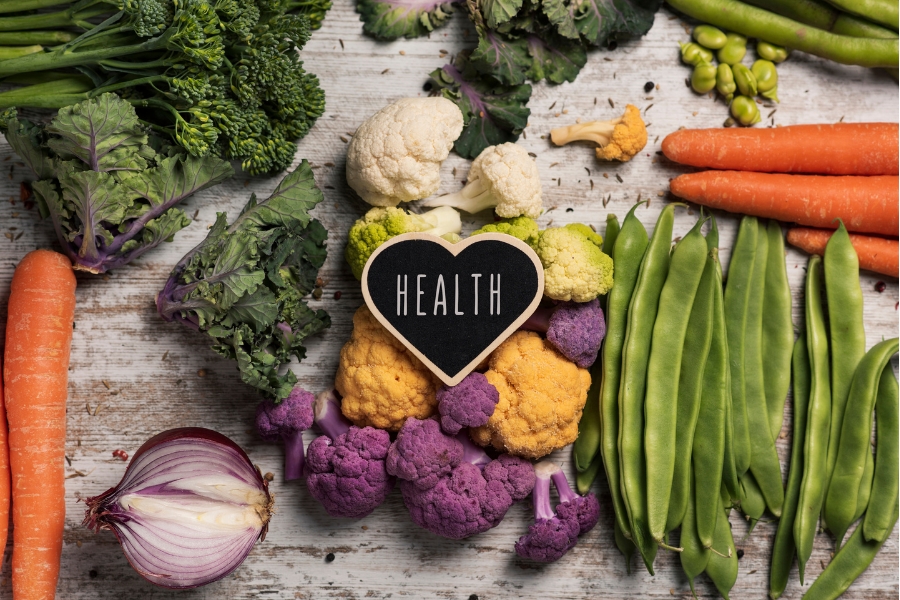
Fibre Supports Menopausal Transition
Fibre is one of the three main requirements for reducing menopause symptoms on a plant-based diet (the other two are low-fat and at least one serving of soy daily). The reasons go beyond fibre helping regulate appetite and keeping blood sugars balanced.
For instance, research found a relationship between dietary fibre intake and depressive systems in perimenopausal women.
Those experiencing depression also had less fibre in their diet. It isn't clear why this is the case, although there are theories that it has to do with the relationship between gut and brain health.
Other research has found that women who eat more fibre also have reduced incidences of the following:
Breast cancer
Colon cancer
Constipation
Heart disease
Inflammation
Hot flashes
Pelvic organ prolapses
Type 2 diabetes
Fibre is plentiful in a vegan diet. But, getting a healthy mix of soluble and insoluble fibre is important. Some fibre-rich foods have both, and others have just one.
Examples of soluble fibre foods:
Apples
Barley
Carrots
Figs
Hazelnuts
Kidney beans
Oats
Oranges
Pears
Sunflower seeds
Sweet potatoes
Turnips
Examples of insoluble fibre foods:
Almonds
Cauliflower
Coconut
Edamame
Oat bran
Radishes
Spinach
Quinoa
Wheat bran
Wheat germ
Vegan Probiotics May Reduce Menopause Symptoms
The science of the relationship between our gut health and the rest of our physical and mental health is in its infancy. However, while there is still a great deal more to learn, science is already finding evidence that probiotics and prebiotics play a role in menopause.
Menopause can cause changes to the microbiota in the body, raising the risk of menopause-related diseases. Improving the microbiota in postmenopausal may help improve the following:
Increase calcium absorption.
Reduce breast cancer risk.
Reduce type 1 endometrial hyperplasia.
Reduce gingival inflammation.
There are many probiotic and prebiotic supplements on the market. The research on the benefits of these oral remedies is unclear. Some people find them helpful, while others do not.
Research has shown that a plant-based diet can help promote healthy gut bacteria due to the diversity of the foods, which are higher in fibre and have a greater variety of carbohydrates. Also, the lack of inflammation appears to help maintain a healthy microbiota.
So yes, fermented and "gut-friendly" foods are good to include in a plant-based diet. But navigating menopause as a vegan is easiest when we eat a diverse range of whole foods to ensure we have a healthy microbiota. Eat the rainbow 🌈
Frequently Asked Questions
Can I follow a Vegan diet without supplements?
A healthy vegan diet requires B12 supplements or B12-fortified food. The rest of your dietary needs can be obtained through a well-planned and nutritionally balanced vegan diet. However, many people find supplements helpful, especially if they have health conditions or a busy life.
Can a plant-based diet help with joint pain?
A vegan diet can help with joint pain, especially if you pair it with low-impact exercises such as yoga, tai chi, and swimming. Some anti-inflammatory foods to enjoy include bok choy, spinach, olives, almonds, chia seeds, cherries, garlic, and ginger.
What are the best plant-based sources of calcium?
Good sources include tofu, tempeh, chia seeds, almonds, kale, and fortified plant-based milks.
How can vegans get omega-3s without fish?
Vegan sources of omega-3s include flaxseeds, chia seeds, walnuts, hemp seeds, and algae-based supplements.
Can I Follow a Vegan Diet While Strength Training?
You can follow a vegan diet while strength training, which is a highly recommended activity for women over 40. Many plant-based proteins, such as tofu and easy-to-grow microgreens, can give you the essential nutrients to build muscle.
Conclusion
Mindfully eating a low-fat, high fibre and protein vegan diet can provide all of the nutrition your body needs to navigate menopause and reduce unwanted symptoms.
Eating fortified foods or supplementing B12 is necessary and this may also be required for a few other nutrients, such as magnesium, omega-3, and vitamin D.
Thankfully, vegan-friendly supplements are available for all these nutrients if required.
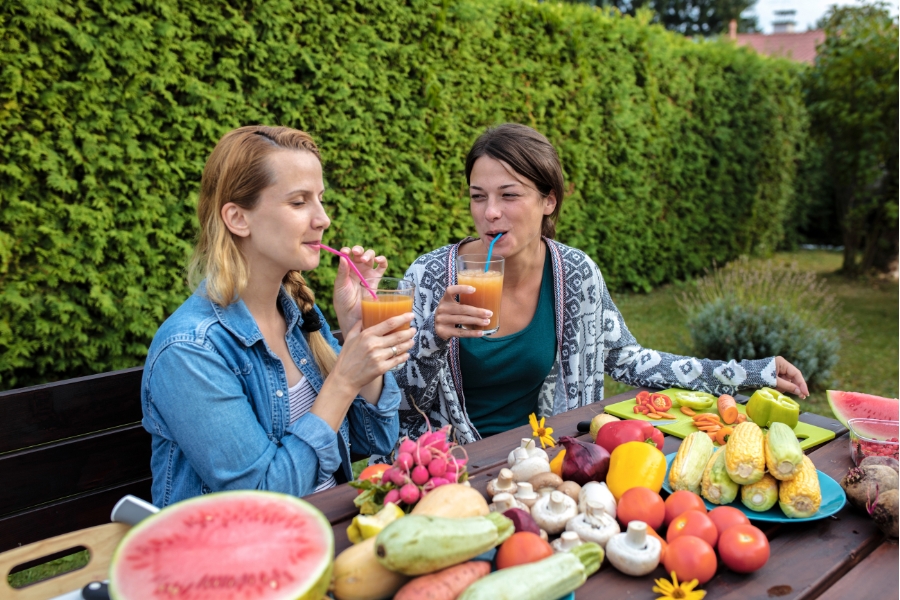
💚 "Happy Plant-Based Eating & Exercising!" 💚

Plant-Based Susy
Plant-Based Nutrition Professional & Weight Loss Coach
Empower Yourself: Embark on a Delicious Fat Loss Adventure

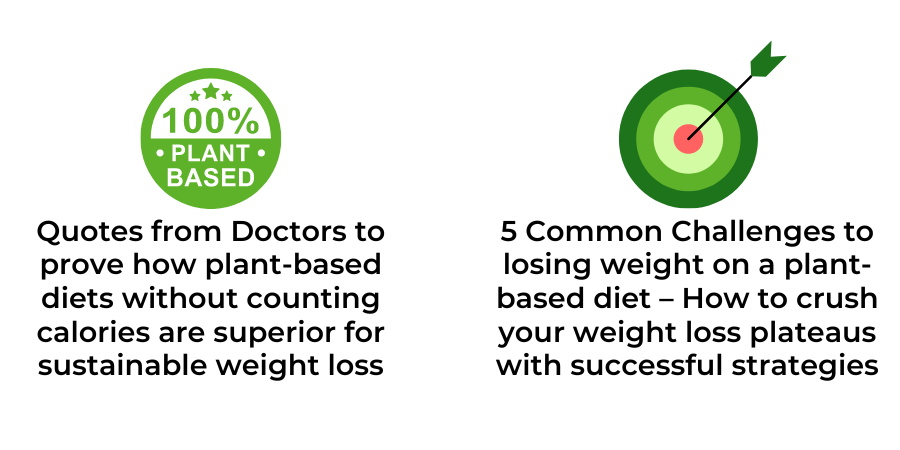
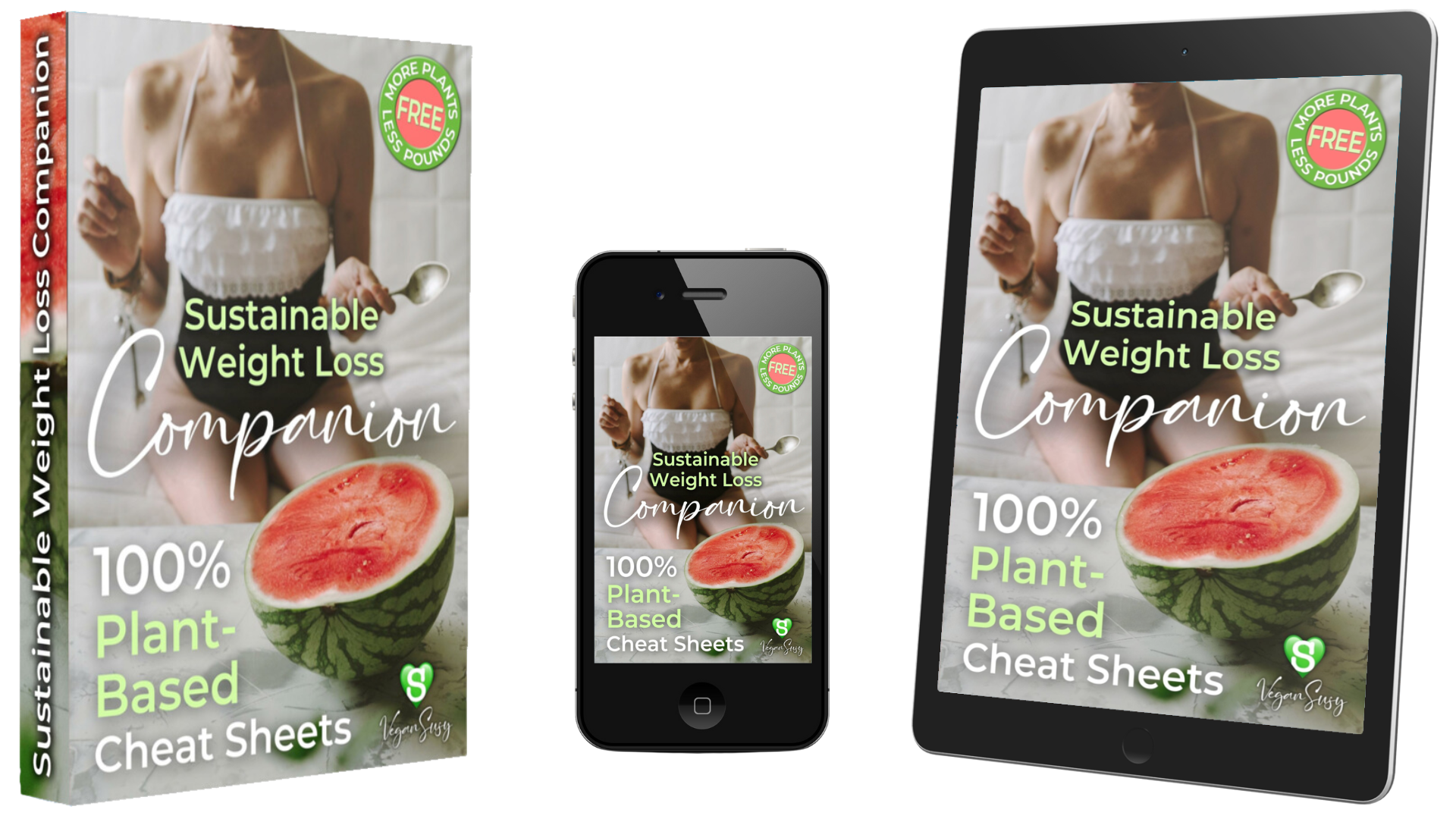
🍉 Get Ready to Jump Start Your Fitness Goals AND DISCOVER A HEALTHIER YOU!
🍉 Let's Make Your Fat Loss & Optimum Health Journey a Delicious Success Story!
🍉 Get The FREE Sustainable Weight Loss Companion eBook and CHEAT SHEETS!
More Free Resources
Unlock Your Transformation Today!
© 2025 VeganSusy Ltd. All Rights Reserved

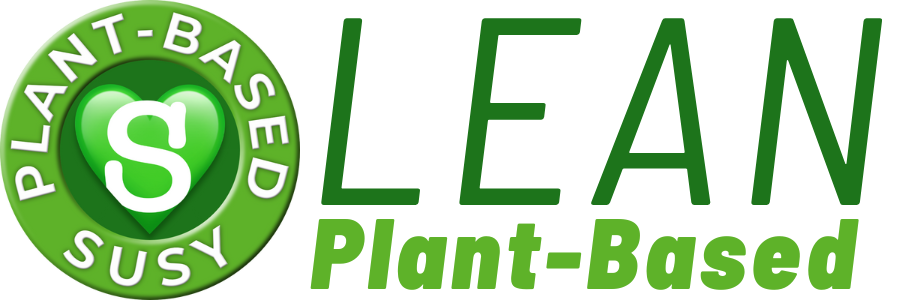
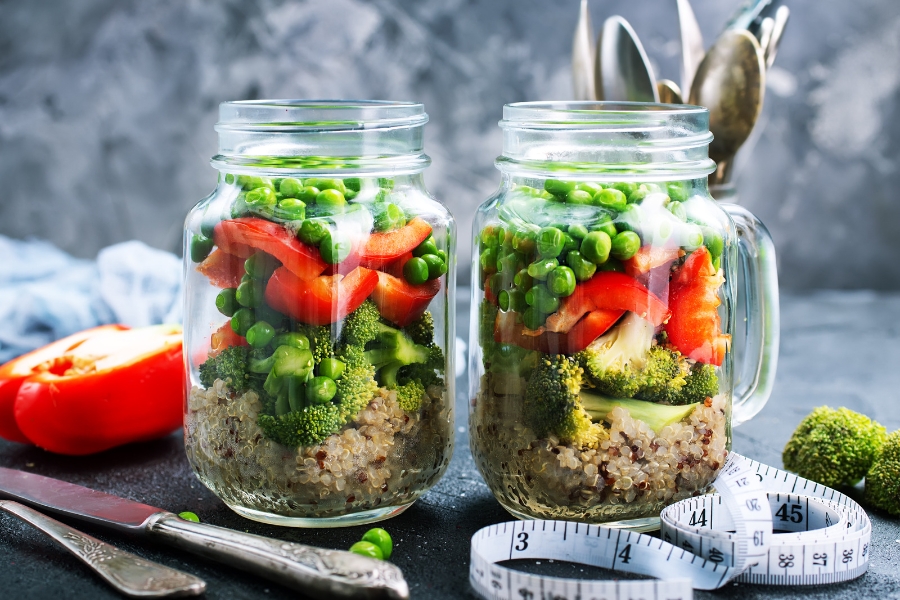
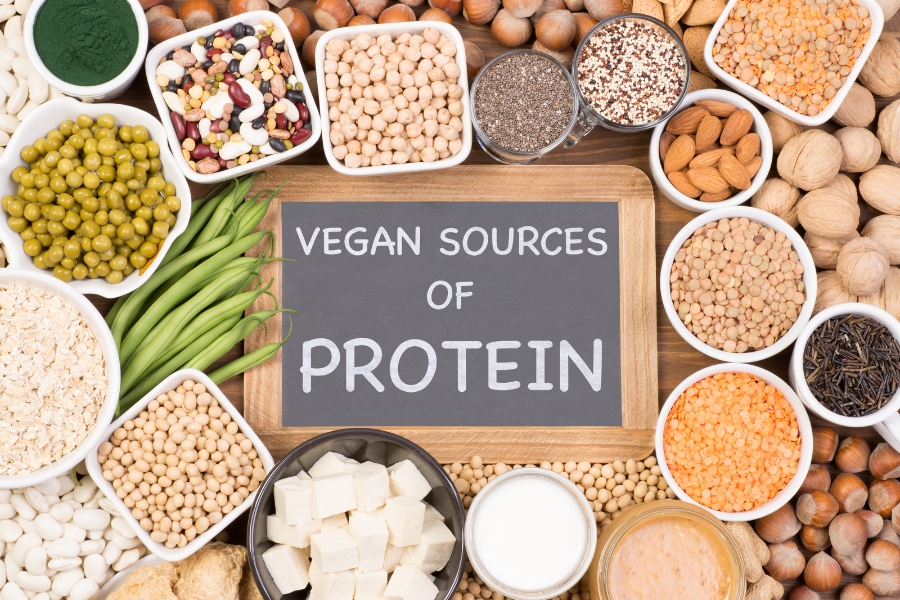

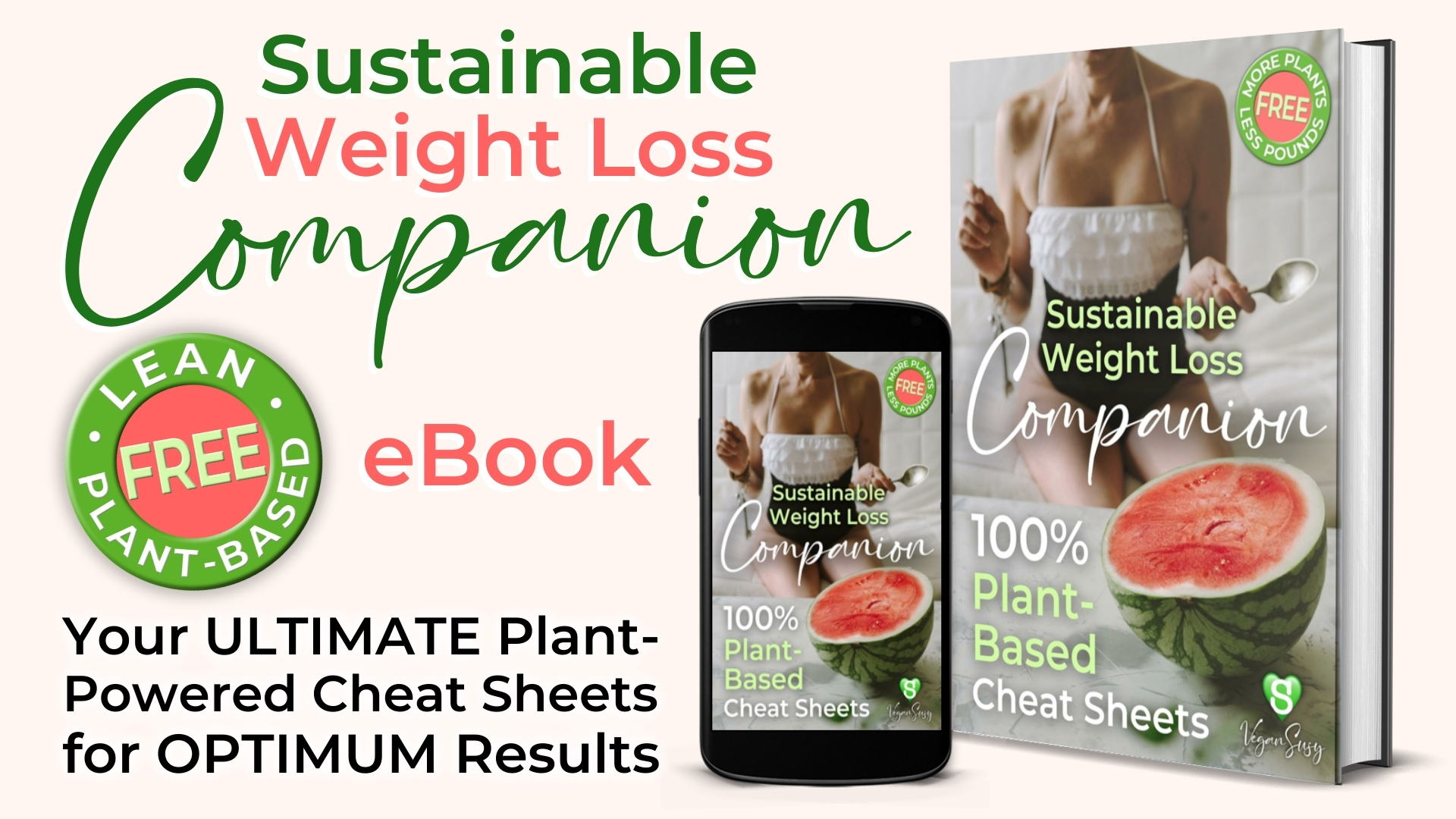




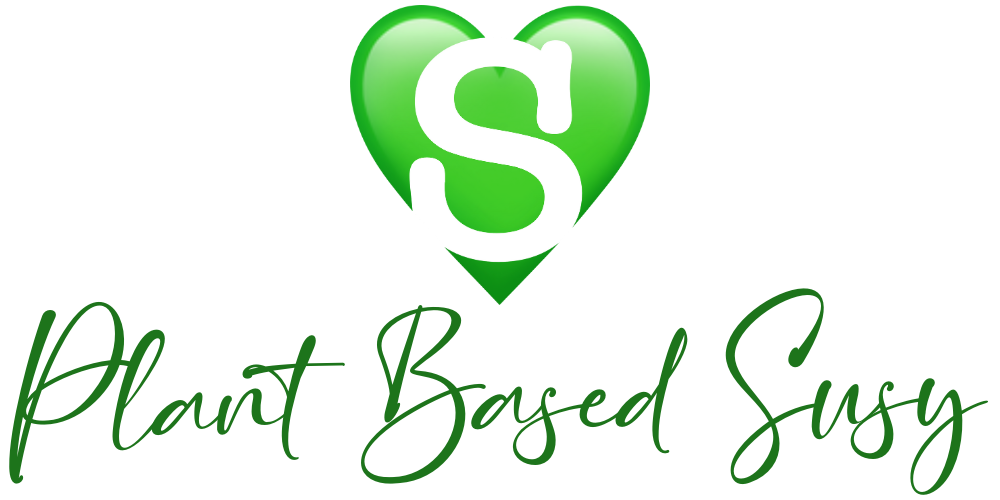
Facebook
Instagram
Youtube
Pinterest